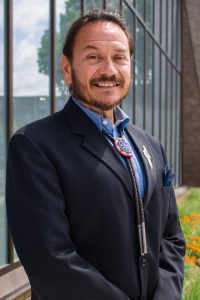
The Journey Begins
It takes deep contemplation to choose to pursue a doctoral degree. One must assess fears and time factors to manage a strategy and make choices that propel the journey. Bandura (1986) found students’ tendencies, surroundings, and identities equally affect the other. So many different avenues cross on this journey–a left or a right could mean the difference between distraction and staying the course. The cohort and residency program experience at Winona State University has made a difference. There is now a community of scholars. Porter (2004) posited a learning community as “a group of people who communicate with each other across the Internet to share information, learn more about a topic, or work on a project of mutual interest” (p. 193). Yet this journey extends beyond a collection of scholars. Most consider the cohort to be family.
Bandura, A. (1986). Social foundations of thought and action: A social cognitive theory. Englewood Cliffs, NJ: Prentice Hall, Inc.
Porter, L.R. (2004). Developing an online curriculum: Technologies and techniques. Hershey, PA: Idea Group, Inc
Problem in Practice
There are many areas for conversation regarding Native Americans in the United States. This conversation extends to a discussion of education and best practices for Native American students, an appealing area of study that warrants further research. Initial research considers Native Americans’ sense of belonging and preparedness in high school to college, as attrition is a major issue in the Native American educational journey. To best frame a problem of practice, the researcher must consult experts, define a theoretical framework, and find gaps in the literature.
Research Questions
Dr. John Locust Jr. has been very instrumental in helping me to understand the way to develop research questions. I honestly felt lost until I had more concrete ways to analyze from a reverse construct of what a problem was as opposed to what it is. Research is transformative and through the process may go from a qualitative to a quantitative study and vice versa. Here were some drafts:
Q1: Do enrolled tribal members that graduated from public schools in Indian Country (on reservation) have a sense of belonging like the same college preparedness as those members that graduated off the reservation at state public schools when matriculating into D1 research institutions?
Q2: Are there institutional pipeline or enrollment onboarding programs that encourage belonging in education available that can assist college preparedness for Native American students?
Q3: Do successful Native American doctoral student peers or successful graduates that have achieved the terminal degree produce access to outreach programs to enhance belonging or make publications available to mentor better preparedness for their respective communities (and their institutions) to mitigate attrition on every level of study?